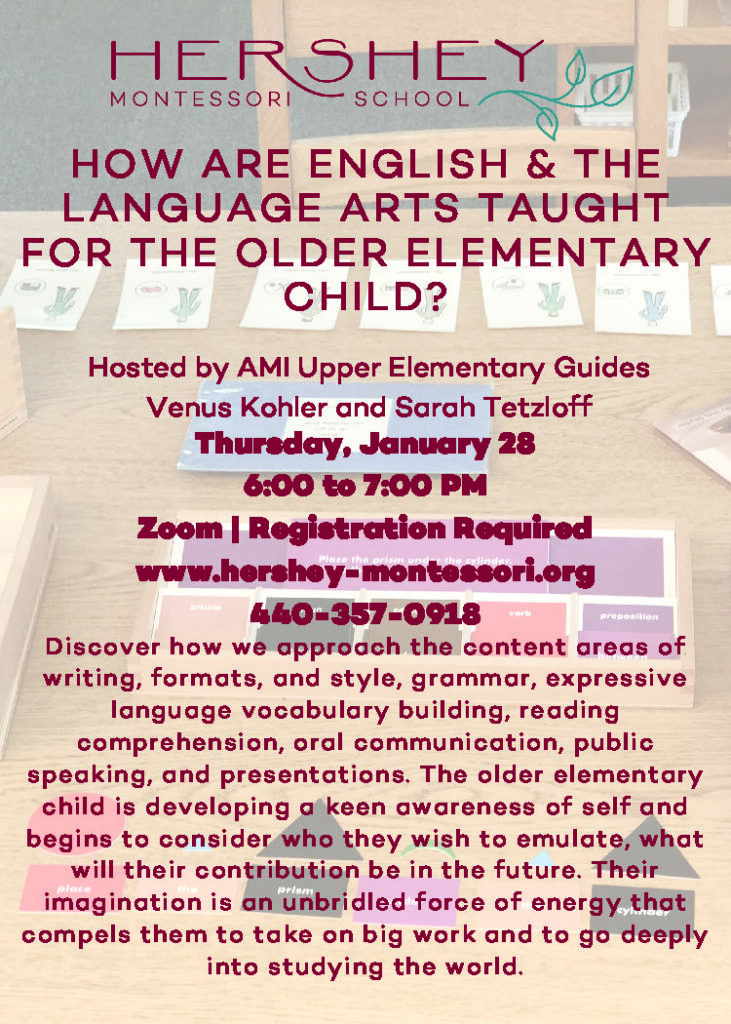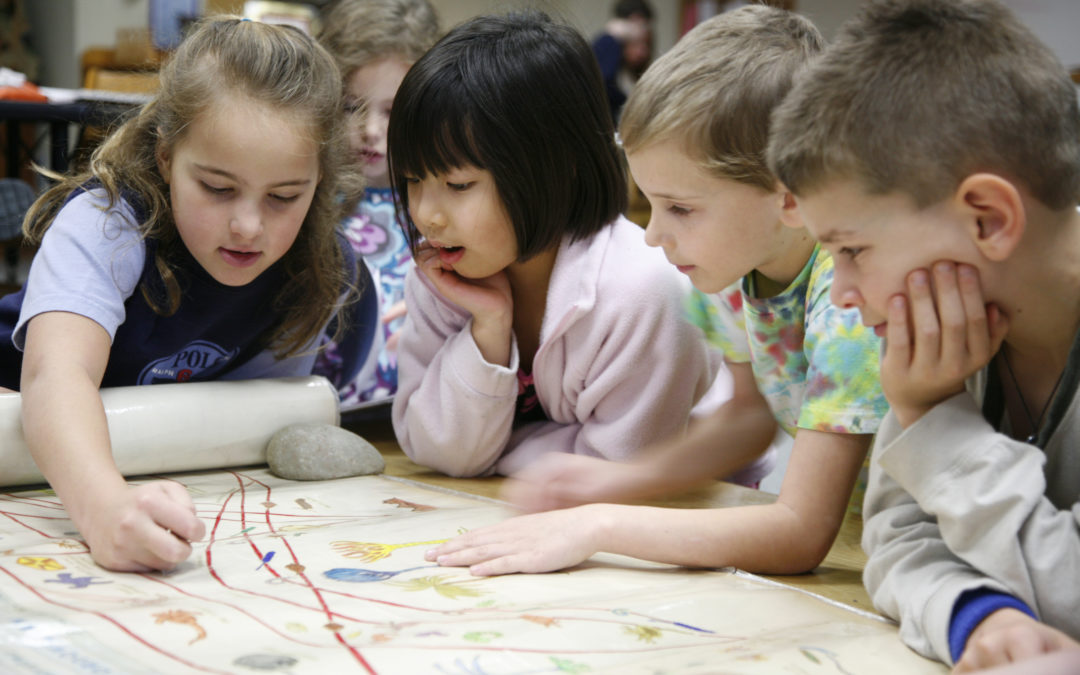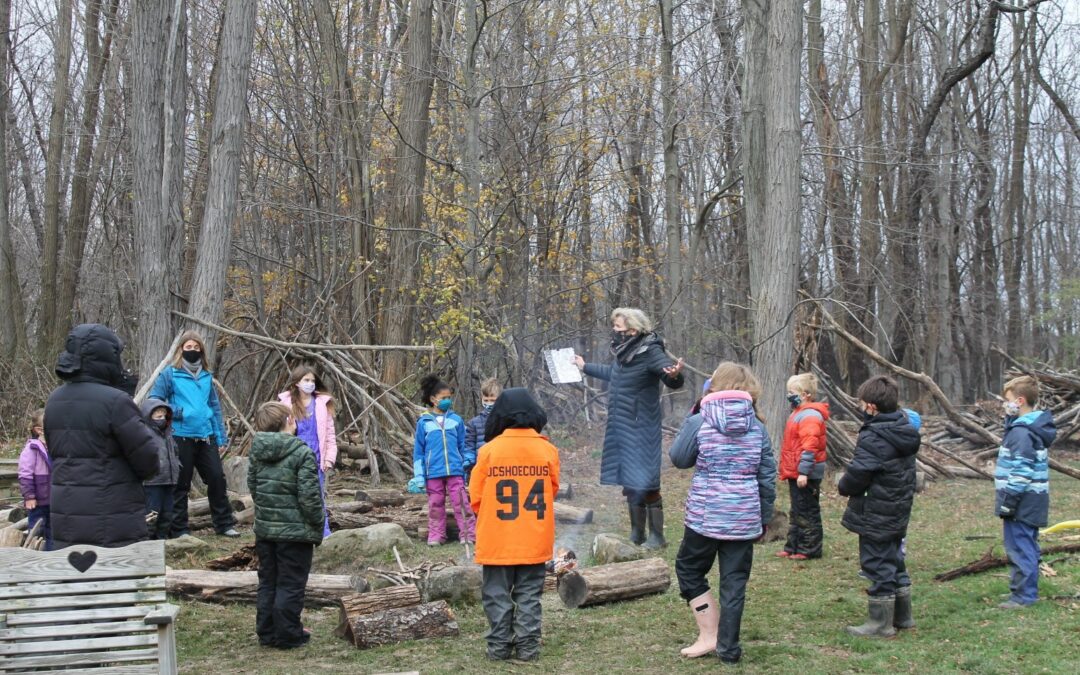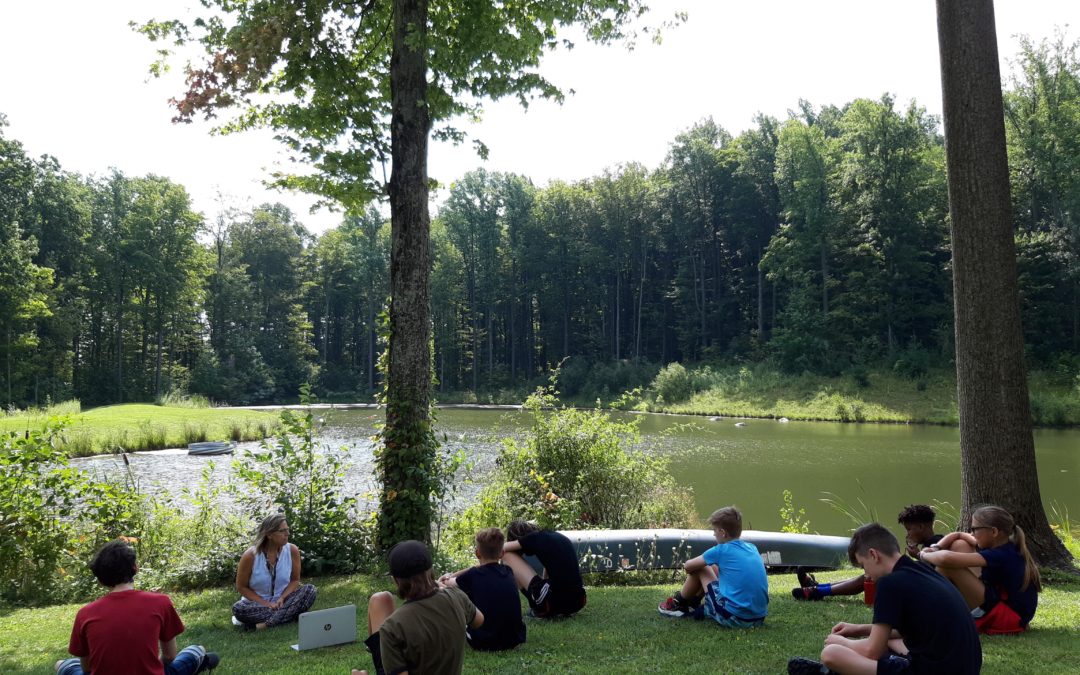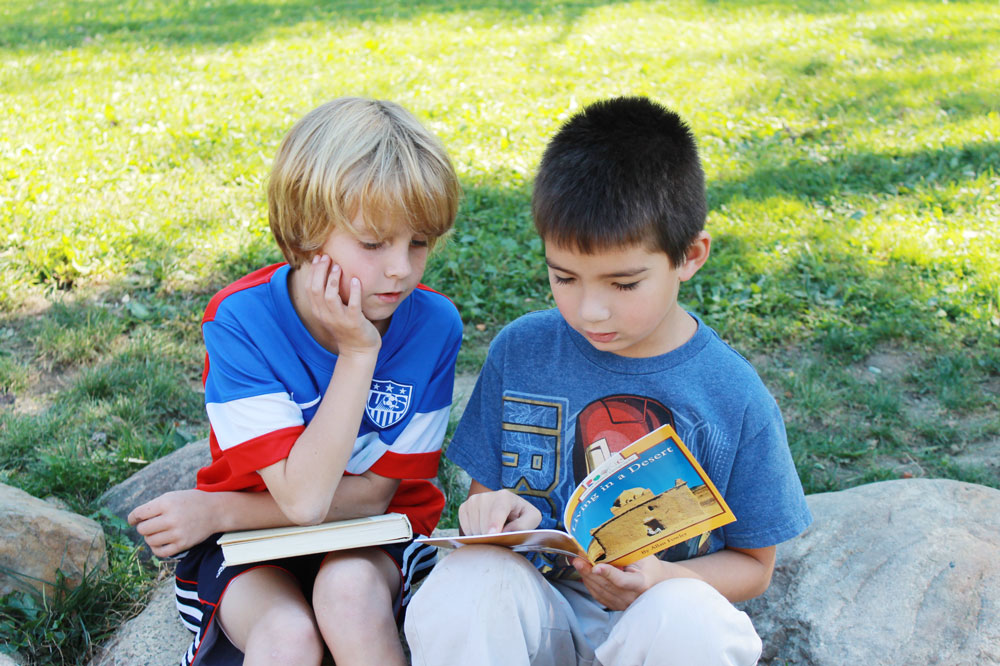
Register for Language Exploration in Elementary Event on January 28, 2021
How are English and the Language Arts taught for the older elementary child?
Join our AMI Upper Elementary Guides, Venus Kohler, and Sarah Tetzloff for this interactive presentation on Thursday, January 28th, from 6:00 – 7:00 pm on Zoom.
Discover how we approach the content areas of writing, formats and style, grammar, expressive language, vocabulary building, reading comprehension, oral communication, public speaking and presentations. The older elementary child is developing a keen awareness of self. They begin to consider who they wish to emulate, and what their contribution be in the future. Their imagination is an unbridled force of energy that compels them to take on big work and go deeply into studying the world.
Language arts is interwoven into social studies, humanities, history, geography, science and the arts. Students continue to learn based upon interest and also in response to the dramatic key lessons they receive, they start to manage time with planners and journals. They learn self-evaluation of the quality of their work, as well as receiving individualized feedback from the guide.
Common language outcomes for children who complete Montessori elementary: our children are confident to use their voice and competent to express themselves. They are socially effective and compassionate communicators, articulate and expressive, avid readers, and have a great love of expression, whether it is poetry, drama, oratory, or public presentations.
Come join our Zoom to hear how this all comes about!

